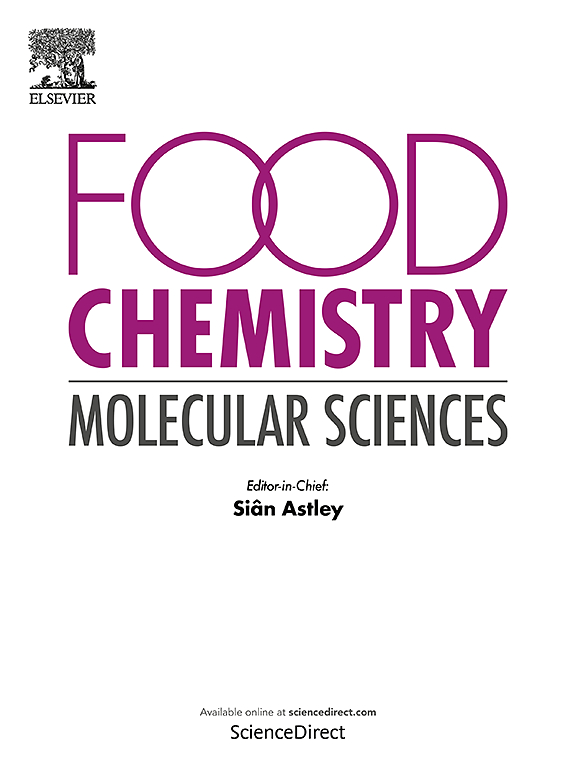Waste to wealth: Polyhydroxyalkanoates (PHA) production from food waste for a sustainable packaging paradigm
IF 4.1
Q2 FOOD SCIENCE & TECHNOLOGY
引用次数: 0
Abstract
The growing demand for sustainable food packaging and the increasing concerns regarding environmental pollution have driven interest in biodegradable materials. This paper presents an in-depth review of the production of Polyhydroxyalkanoates (PHA), a biodegradable polymer, from food waste. PHA-based bioplastics, particularly when derived from low-cost carbon sources such as volatile fatty acids (VFAs) and waste oils, offer a promising solution for reducing plastic waste and enhancing food packaging sustainability. Through optimization of microbial fermentation processes, PHA production can achieve significant efficiency improvements, with yields reaching up to 87 % PHA content under ideal conditions. This review highlights the technical advancements in using PHA for food packaging, emphasizing its biodegradability, biocompatibility, and potential to serve as a biodegradable alternative to petroleum-based plastics. However, challenges such as high production costs, mechanical limitations, and the need for scalability remain barriers to industrial adoption. The future of PHA in food packaging hinges on overcoming these challenges through further research and innovation in production techniques, material properties, and cost reduction strategies, along with necessary legislative support to promote widespread use.
变废为宝:利用食物垃圾生产聚羟基烷酸(PHA),打造可持续包装模式
人们对可持续食品包装的需求日益增长,对环境污染的关注也与日俱增,这促使人们对可生物降解材料产生了浓厚的兴趣。本文深入探讨了利用食物垃圾生产聚羟基烷酸酯(PHA)这种可生物降解的聚合物。以 PHA 为基础的生物塑料,尤其是从挥发性脂肪酸 (VFA) 和废油等低成本碳源中提炼出来的生物塑料,为减少塑料垃圾和提高食品包装的可持续性提供了一种前景广阔的解决方案。通过优化微生物发酵过程,PHA 的生产效率可显著提高,在理想条件下,PHA 的产量可达 87%。本综述重点介绍了将 PHA 用于食品包装的技术进展,强调了 PHA 的生物降解性、生物相容性以及作为石油基塑料的可生物降解替代品的潜力。然而,高昂的生产成本、机械限制和可扩展性需求等挑战仍然是工业应用的障碍。PHA 在食品包装中的未来取决于通过进一步研究和创新生产技术、材料特性和降低成本策略来克服这些挑战,同时还需要必要的立法支持来促进其广泛应用。
本文章由计算机程序翻译,如有差异,请以英文原文为准。
求助全文
约1分钟内获得全文
求助全文
来源期刊

Food Chemistry Molecular Sciences
Agricultural and Biological Sciences-Food Science
CiteScore
6.00
自引率
0.00%
发文量
83
审稿时长
82 days
期刊介绍:
Food Chemistry: Molecular Sciences is one of three companion journals to the highly respected Food Chemistry.
Food Chemistry: Molecular Sciences is an open access journal publishing research advancing the theory and practice of molecular sciences of foods.
The types of articles considered are original research articles, analytical methods, comprehensive reviews and commentaries.
Topics include:
Molecular sciences relating to major and minor components of food (nutrients and bioactives) and their physiological, sensory, flavour, and microbiological aspects; data must be sufficient to demonstrate relevance to foods and as consumed by humans
Changes in molecular composition or structure in foods occurring or induced during growth, distribution and processing (industrial or domestic) or as a result of human metabolism
Quality, safety, authenticity and traceability of foods and packaging materials
Valorisation of food waste arising from processing and exploitation of by-products
Molecular sciences of additives, contaminants including agro-chemicals, together with their metabolism, food fate and benefit: risk to human health
Novel analytical and computational (bioinformatics) methods related to foods as consumed, nutrients and bioactives, sensory, metabolic fate, and origins of foods. Articles must be concerned with new or novel methods or novel uses and must be applied to real-world samples to demonstrate robustness. Those dealing with significant improvements to existing methods or foods and commodities from different regions, and re-use of existing data will be considered, provided authors can establish sufficient originality.
 求助内容:
求助内容: 应助结果提醒方式:
应助结果提醒方式:


